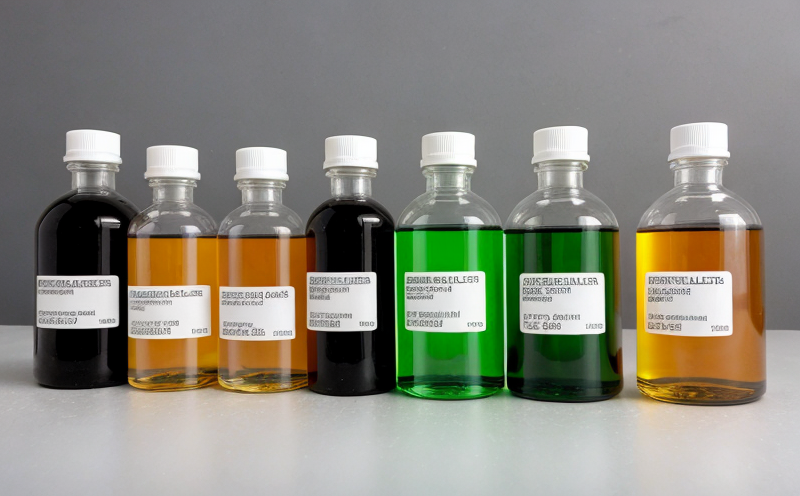USP Plastic Packaging System Extractables Testing
In the medical device industry, ensuring that plastic packaging systems are safe and compliant is a critical aspect of quality assurance. The United States Pharmacopeia (USP) [1] provides specific tests to ensure that materials used in drug products do not contain harmful substances that could leach into those products during storage or use. USP Plastic Packaging System Extractables Testing is one such method designed to identify potentially harmful chemicals from plastic packaging.
The testing process for extractables involves simulating the conditions under which a drug product might come into contact with its container, whether it be during manufacturing, storage, or delivery. This includes high-temperature water baths, acidic and basic solutions, simulated perspiration, and other aggressive media intended to mimic real-world scenarios.
Once extracted, these compounds are analyzed using various analytical techniques such as High Performance Liquid Chromatography (HPLC), Gas Chromatography-Mass Spectrometry (GC-MS), or Fourier Transform Infrared Spectroscopy (FTIR). The goal is to identify and quantify any substances that could potentially leach into the drug product, which might pose a risk of toxicity.
The key challenge lies in ensuring that all relevant extractables are identified. This requires a thorough understanding of both the plastic materials involved and the specific conditions under which they may interact with the contents of the package. Factors like temperature, humidity, and storage duration can significantly influence what extracts out of the packaging material.
Compliance with USP is mandatory for manufacturers seeking to ensure that their products meet regulatory standards set forth by health authorities worldwide. By conducting rigorous extractables testing early in the development process, companies can avoid costly delays later on due to non-compliance issues during clinical trials or post-market surveillance.
This service ensures not only compliance with USP but also helps maintain a high level of confidence among healthcare providers and patients regarding the safety of medical devices. It plays an important role in protecting public health by preventing potentially harmful chemicals from entering contact with drugs intended for human use.
Quality and Reliability Assurance
The quality assurance process associated with USP Plastic Packaging System Extractables Testing involves several steps aimed at ensuring that every batch of extracted samples meets stringent criteria before being approved for use in medical devices.
- Sample Preparation: Careful preparation ensures accurate results. Samples are typically ground into fine powders and placed in appropriate containers to simulate real-world conditions.
- Solvent Selection: The choice of solvent is crucial as it can affect the extraction efficiency. Common solvents include water, ethanol, methanol, and acetone depending on the material being tested.
The testing laboratory uses state-of-the-art analytical equipment to perform these analyses. For instance, HPLC systems equipped with diode array detectors allow for precise measurement of multiple compounds simultaneously. GC-MS instruments provide detailed structural information about the extracted substances while FTIR spectrometers offer qualitative assessments based on vibrational fingerprinting.
After analysis, data is compiled into comprehensive reports detailing all detected extractables along with their concentrations. These reports serve as proof that each batch meets USP requirements, thereby safeguarding the integrity of the entire manufacturing process.
Customer Impact and Satisfaction
- Enhanced Patient Safety: By identifying potential risks early on through rigorous testing, customers can ensure that their products remain safe throughout their lifecycle. This reduces the likelihood of adverse events related to packaging materials.
- Regulatory Compliance: Meeting USP standards helps companies avoid costly recalls and fines associated with non-compliance. It also enhances reputation among stakeholders who rely on reliable data for decision-making.
In addition, satisfying customers’ requirements translates into increased trust between manufacturers and healthcare professionals. When both parties have confidence in the safety of medical devices, it fosters better relationships and more effective communication regarding product performance and expectations.
Moreover, consistent adherence to USP guidelines demonstrates a commitment to excellence that resonates with consumers looking for high-quality products. This translates into higher customer satisfaction levels overall as they know their purchases are backed by robust testing protocols.
International Acceptance and Recognition
USP Plastic Packaging System Extractables Testing is widely recognized across various international markets, particularly in regions where stringent quality control measures are required for medical devices. Countries like the United States, Canada, Europe, Japan, and Australia all have similar regulations governing the safety of packaging materials used in pharmaceutical products.
- USP : Mandated by regulatory bodies in North America, this standard sets out stringent requirements for extractables testing.
- Pharmacopeias in Europe and Asia: Similarly, European Pharmacopoeia (EP) and Japanese Pharmacopoeia (JP) provide comparable guidelines that emphasize the importance of rigorous extraction studies.
Adherence to these standards not only facilitates smoother market access but also enhances brand reputation globally. Companies operating internationally benefit from having consistent procedures across different jurisdictions, reducing operational complexity while maintaining uniform quality standards.
The widespread adoption of USP has led to increased collaboration between regulatory agencies and industry stakeholders. This collaborative approach ensures that best practices are continuously refined and updated to reflect advances in technology and scientific knowledge.





